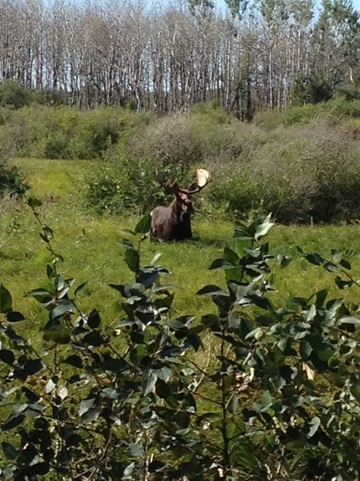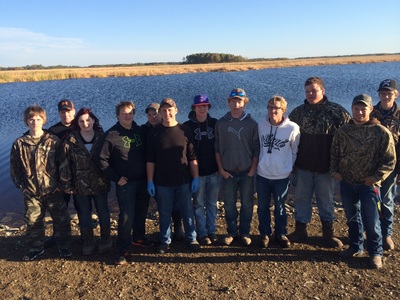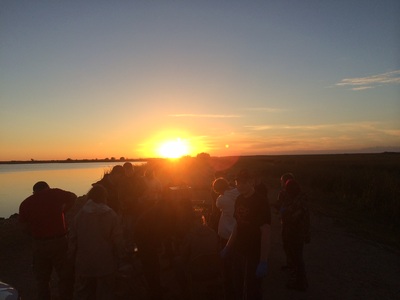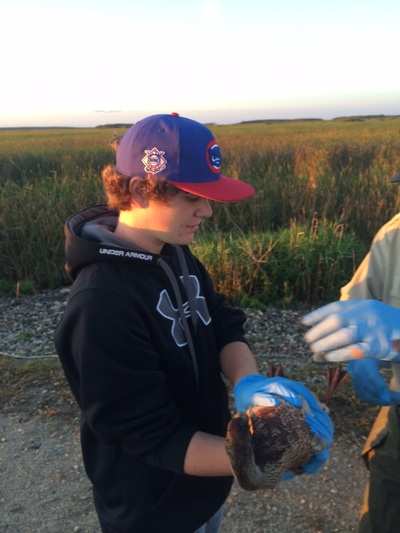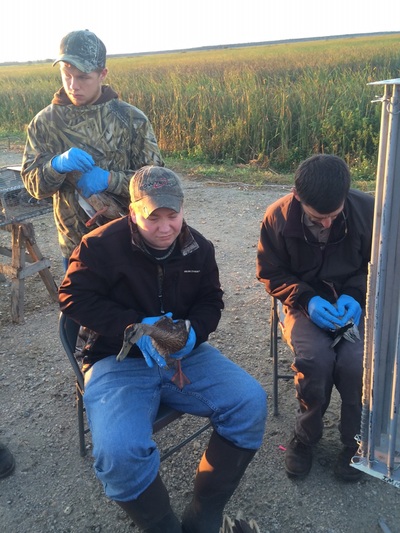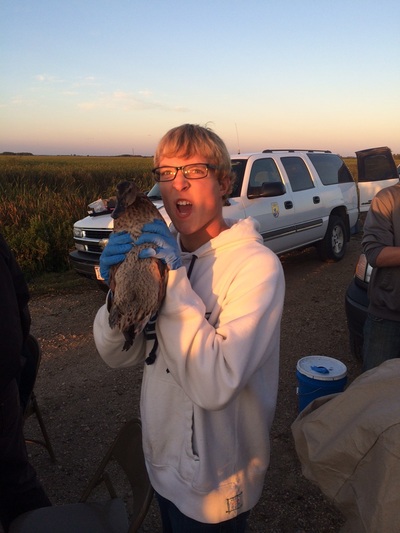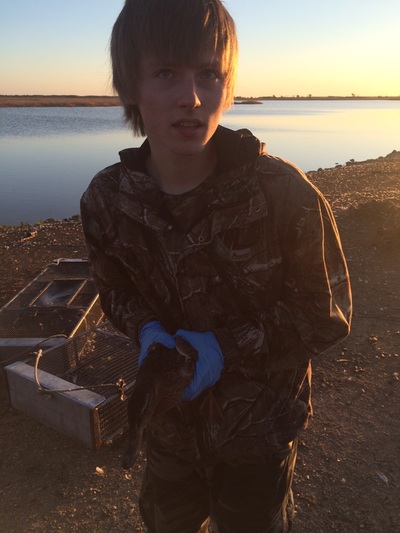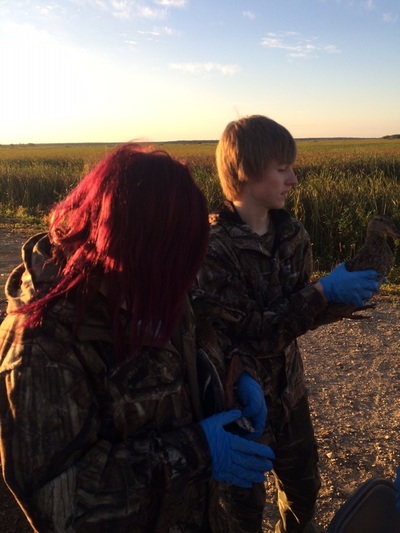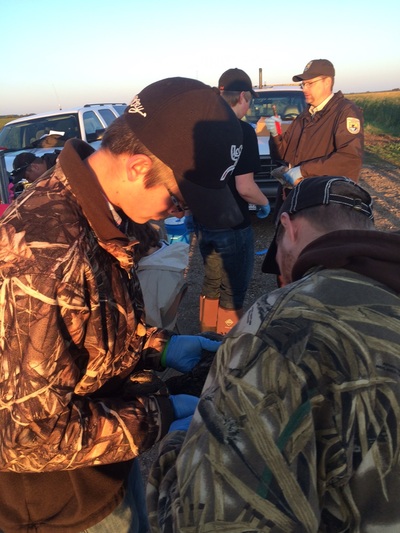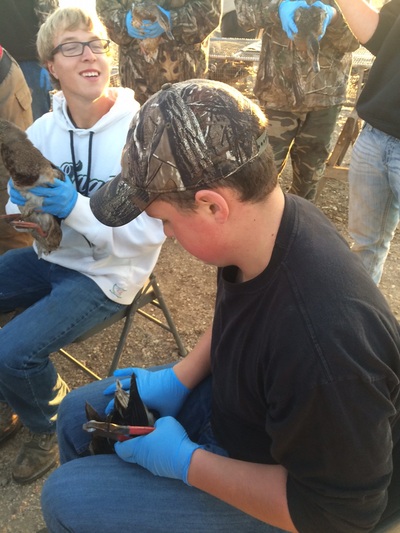EcologyEcology is the study of the relationships between living things and their environment. Students will learn basic ecological concepts in the classroom and then apply this knowledge by cooperating with the Minnesota DNR in two wildlife surveys; a predator track-pad study near Newfolden and a small mammal survey at Agassiz National Wildlife Refuge. Other outdoor lab activities include a study of amphibians at Agassiz National Wildlife Refuge and a study of grasslands at the Old Mill State Park, and a study of a wilderness bog at Agassiz National Wildlife Refuge. Students will also learn basics of wildlife ecology as it relates specifically to deer and bear and will also be taught basic outdoor survival skills.
|
Duck Banding - September 8, 2014
Tamarac Trail
Tamarac Trail
Amphibian and Small Mammal Pitfall Study
|
Duck Banding
|
